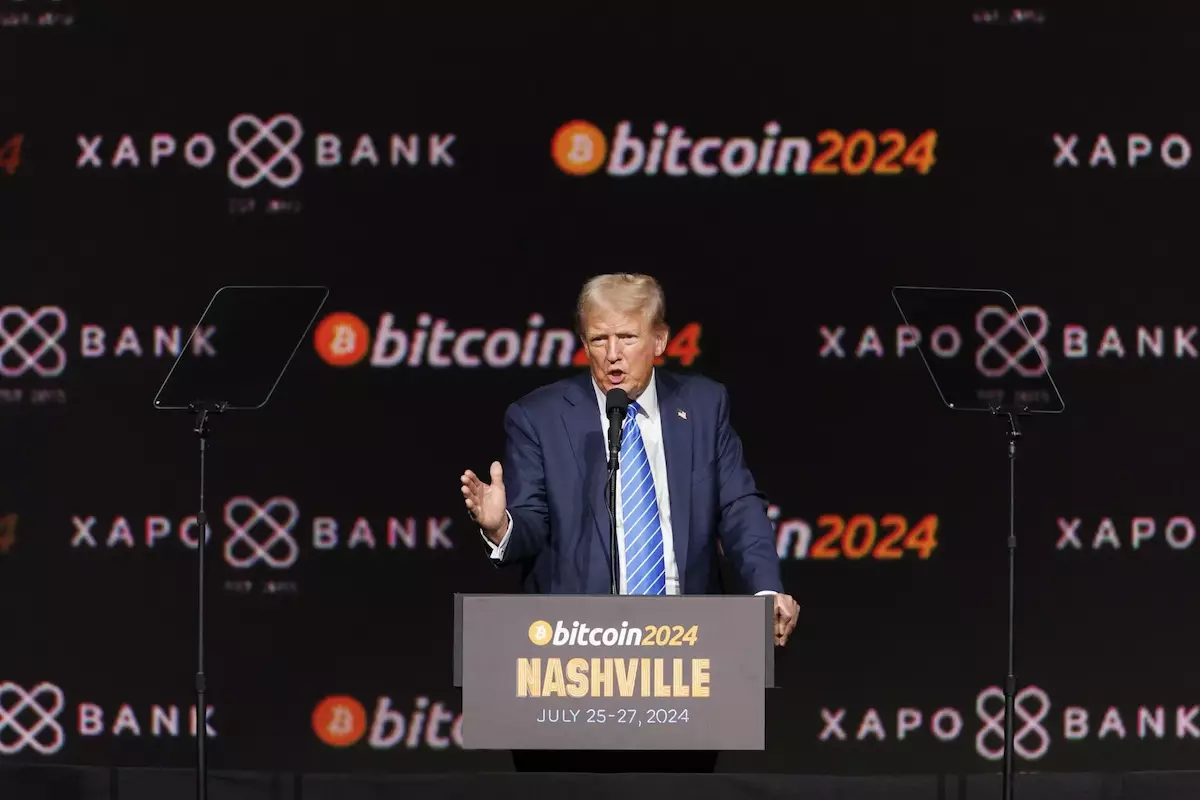The recent electoral triumph of Donald Trump has ignited debates across various sectors, and the Web3 domain is no exception. With the landscape of digital assets continuously evolving, exploring the ramifications of a Trump presidency within the sphere of Web3 gaming becomes important. This emerging field, characterized by innovation, community engagement, and digital asset ownership, stands to either thrive or falter depending on the regulatory framework laid out by the administration.
An examination of Trump’s past comments reveals a significant dichotomy in his approach to cryptocurrencies. In 2021, Trump labeled Bitcoin a “scam,” expressing concerns over its potential to disrupt the United States dollar. However, the last few years have seen a remarkable pivot in his attitude. The notion that a Trump administration may adopt a more crypto-friendly policy aligns with a broader global movement towards the acceptance and integration of blockchain technologies and cryptocurrencies within existing financial systems.
This changing perspective could be instrumental for Web3 gaming, which heavily relies on blockchain technologies for digital ownership and in-game economies. A supportive administration could catalyze a regulatory environment that fosters innovation, thus allowing developers the freedom to explore creative avenues within their platforms.
Navigating regulatory complexities has long been a hindrance for the Web3 gaming scene. The introduction of clear, supportive policies by the Trump administration could be a game-changer. The importance of such regulations cannot be overstated; developers and gamers are often stifled by restrictions that create uncertainty regarding legal compliance.
The prospect of a relaxed regulatory atmosphere under a Trump-led government might embolden developers to craft games that utilize tokenized economies without the specter of legal repercussions. This dynamic could simplify the introduction of innovative game mechanics and enhance the overall user experience.
The historical context of Trump’s first term offers insight into the potential future of Web3 gaming. The crypto market witnessed extreme volatility, characterized by significant spikes and corrections:
– In 2017, Bitcoin soared from $1,000 to nearly $20,000, while Ethereum increased from $8 to over $700.
– The subsequent correction in 2018 saw Bitcoin plunged to $3,200 and Ethereum to $130. However, a gradual recovery followed, reflecting a maturation of the crypto ecosystem.
Given this tumultuous history, understanding market trends during Trump’s presidency could provide valuable lessons on the cyclical nature of crypto and emerging technologies like Web3 gaming.
The Securities and Exchange Commission (SEC) will play a pivotal role in the future of Web3 gaming, especially regarding token regulation. Trump’s discontent with current SEC Chair Gary Gensler could set the stage for significant changes in how cryptocurrencies and digital assets are regulated. A new SEC chair more sympathetic to crypto interests would likely streamline the regulatory process for gaming platforms that incorporate cryptocurrencies.
Such a shift could remove barriers currently faced by platforms in terms of token issuance and trading, thus legitimizing in-game assets as real investments. This would foster an environment conducive to growth and expansion, vital for the burgeoning Web3 gaming space.
A favorable regulatory climate under a pro-crypto Trump administration could open the floodgates for investment in Web3 gaming. Capital inflow from venture capitalists may accelerate the development of decentralized platforms, ultimately giving rise to a more robust technology ecosystem.
Traditional gaming companies, sensing the wave of opportunity, may begin integrating blockchain features, paving the way for collaboration and creating the potential for greater mainstream acceptance of Web3 gaming. The consolidation of traditional gaming with blockchain technology could yield a hybrid model that attracts a wider audience.
America’s regulatory posture towards cryptocurrencies typically sets a precedent that other nations often follow. A favorable crypto policy in the United States could position it as a leader in digital innovation, influencing how international regulations evolve. This could lead to collaborative ventures in Web3 gaming across borders or, conversely, conflicting regulatory approaches.
The developments in the U.S. crypto scene will have a significant ripple effect on the global Web3 gaming landscape—shaping market dynamics and potentially uniting or dividing international efforts in the digital asset space.
As Trump’s administration gears up to potentially embrace a more crypto-friendly climate, the implications for Web3 gaming are profound. The anticipation of an emerging, more favorable regulatory environment coupled with the prospect of new leadership in the SEC hints at a future ripe for innovation and expansion in the digital asset realm. The question remains whether this trend will genuinely materialize and how it will ultimately shape the course of Web3 gaming in the years to come.














Leave a Reply